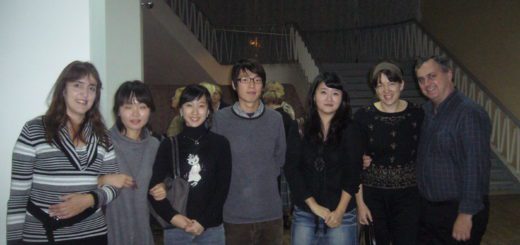Walls, Weariness, Welcome, Wholeheartedness (Hebrews 11)
We are well into our really slow journey through Hebrews 11, the hall of faith, the hall of heroes.
Last Sunday, John talked about the unlikely paths we’re all on. God has each of us on a faith journey, and that means trying stuff, doing something, putting one foot in front of the other even when it’s hard, painful or uncomfortable. As John said, not trying is not really an option. Last week’s Scripture described an unlikely path that God made for His people right through the middle of a sea. This morning we’re going to discover yet another kind of unlikely path. And another unlikely hero.
Our key Scriptures today are in the book of Hebrews, but we’ll be visiting several other books of the Bible. All of my readings are from the New Revised Standard Version of the Bible.
Hebrews 11:30-31 (NRSV): “By faith the walls of Jericho fell after they had been encircled for seven days. By faith Rahab the prostitute did not perish with those who were disobedient, because she had received the spies in peace.”
- Walls
Did you know that Jericho, now situated in Palestine on the West Bank, is considered the oldest city in the world? It is also the city with the oldest known protective wall, built around 8000 BC. The events we’re looking at today occurred much more recently, around 1400BC, a mere 3400 years ago. That old protective city wall was about 5-6.5 feet thick and 12-17 feet high. It served a defensive purpose as well as offering protection from floods. For comparison, the Berlin Wall was 3.9 feet thick and 12 feet tall. This means that the wall around Jericho that was built about 10,000 years ago was almost twice as thick as the Berlin Wall built in the 20th century. Impressive wall-building!
Our first verse in Hebrews says that by faith the walls of Jericho fell after they had been encircled for seven days. How exactly does a city get encircled? It happens when someone starts where they are, puts one foot in front of the other, and repeats over and over again, until they’ve walked around the entire circumference of the walls.
Our family was recently in the Balkans celebrating our oldest son’s wedding. On one of our many airport runs for various family members, several of us got to visit the Old Town of Dubrovnik, which has walls that are triple the thickness of our Jericho walls. Because we had just a few hours, we did a very quick, unplanned walk inside the city. We actually tried to encircle the city for awhile, and I know this sounds a little silly, we couldn’t figure out how to get to the edge. There were homes and businesses tucked into every nook and cranny of every wall, lane, staircase, you name it. Cities with walls around them tend not to be built on flat ground in convenient, regular, concave shapes. It was incredibly difficult to find the city boundaries. We climbed up and down countless steps and turned many corners, often thinking we’d finally reached the edge of the city, only to discover there was more. And many more corners we turned lead only to dead ends. Another unlikely journey. It was reasonably fun for a few hours but was nowhere near the simple walk we’d imagined it would be.
The walls of Jericho – they fell. How? All we’re told is, after those walls had been encircled for 7 days, the walls fell by faith. We’re not given comprehensive explanations of everything, nor are we promised them. We are told that things happen when we put faith in God into action.
The account of the Fall of Jericho in Joshua 6 is admittedly a very difficult story for us to understand, raising more questions than answers for most people. Theologians have debated these tough questions for centuries, and I want to acknowledge the tensions in this story while gleaning some treasures contained within.
We are reading about a particular set of walls in a particular city at a particular time. This is a historical story. But the writer of Hebrews draws our attention to it in order to emphasize that this was no ordinary story. It was by faith that these walls fell.
- Weariness
Peeking ahead to what follows our hall of heroes, this hall of faith, we are told in Hebrews 12:1-3 (NRSV): “Therefore, since we are surrounded by so great a cloud of witnesses, let us also lay aside every weight and the sin that clings so closely, and let us run with perseverance the race that is set before us, looking to Jesus, the pioneer and perfecter of faith, who for the sake of the joy that was set before him endured the cross, disregarding its shame, and has taken his seat at the right hand of the throne of God. Consider him who endured such hostility against himself from sinners, so that you may not grow weary in your souls or lose heart.”
What walls are we up against in our lives that are making us worn out or weary? We all tend to get cluttered up in our minds sometimes, with walls that can obscure our view of who God is and what He’s doing. Sometimes we’re hanging on to old thought patterns, sometimes we have fresher misunderstandings, sometimes we borrow from the difficulties of others. We probably get some of these walls from the news or social media, not the best sources for the abundant life.
Psalm 121:1-2 (NRSV) – “I lift up my eyes to the hills—from where will my help come? My help comes from the Lord, who made heaven and earth.”
God continually invites us to lift our eyes up above the walls we can see to Him, above our thoughts, above the noise, above our circumstances. As much as we all tend to hope for simple, life tends to be complicated. We all tend to hope for predictable, but life tends to tuck in ever more surprises, some welcome, some not-so-much. We all tend to hope for comfortable, yet life seems to have a way of wearing away at our bodies, our hearts, and our minds. Are you weary? Lift your eyes off of the walls and on to God. He is with you. He is for you. He is able. He is good.
- Welcome
Now onto our second verse. Verse 31 goes on to focus on a single person in the city of Jericho. By faith Rahab the prostitute did not perish with those who were disobedient, because she had received the spies in peace.
We are told that Joshua, whom God commissioned as Moses’ successor in leading the people of Israel into the Promised Land, saved one person in the entire city, along with all who belonged to them.
If you heard of a city in which a leader selected one person to spare (along with all who belonged to them), what kind of person would you expect that to be? The head of government? A person of wealth? A military leader? A cultural hero? A man? In the shame-honor culture of the day, Joshua shockingly chose someone who clearly occupied the lowest shame rung. In this kind of culture, it doesn’t matter what this person has said or done. Their words and actions tend to not register, no matter how kind or good they’ve been. They tend to be overlooked in every setting, particularly in places of power.
Let’s meet our unlikely hero and pick up the story in Joshua 2:1-4,8-11 (NRSV): “Then Joshua son of Nun sent two men secretly from Shittim as spies, saying, ‘Go, view the land, especially Jericho.’ So they went and entered the house of a prostitute whose name was Rahab and spent the night there. 2 The king of Jericho was told, ‘Some Israelites have come here tonight to search out the land.’ 3 Then the king of Jericho sent orders to Rahab, ‘Bring out the men who have come to you, who entered your house, for they have come to search out the whole land.’ 4 But the woman took the two men and hid them . . . 8 Before they went to sleep, she came up to them on the roof 9 and said to the men, ‘I know that the Lord has given you the land and that dread of you has fallen on us and that all the inhabitants of the land melt in fear before you. 10 For we have heard how the Lord dried up the water of the Red Sea before you when you came out of Egypt and what you did to the two kings of the Amorites who were beyond the Jordan, to Sihon and Og, whom you utterly destroyed. 11 As soon as we heard it, our hearts melted, and there was no courage left in any of us because of you.”
Notice that Rahab is described here only as a woman and a prostitute. First century historian Josephus adds that she was also an innkeeper, an unsurprising detail as it was not uncommon for both an inn and a brothel to operate within the same building. We are not given further details about the spies, other than that they entered her house and spent the night there. We do know that somehow Rahab had heard of the Lord and what He had done. I don’t think it automatically follows that it was easy for Rahab to show kindness to these men. By definition, a prostitute is someone who exchanges sexual activity for payment. Prostitution offered no protections for those whose livelihood depended on it. Chances are, Rahab had been used and abused by numerous men. Chances are she had grown accustomed to being treated as an object. Chances are she was more or less invisible in the eyes of others.
On this particular day, she was going about her usual routines, when God interrupted her with a divine duty, some heavenly homework, a mystical mission. God called forth the unlikely hero within. She responded with a “yes” in her heart and actions to back that up. As she put her faith in the Lord into action, God used her to set others free and to change the course of history.
God called Rahab to welcome the stranger in her life. Later God called Joshua to welcome Rahab and all who belonged to her. God is continually inviting us to welcome another, and often He interrupts us and takes us out of our comfort zones to do so.
- Wholeheartedness
There’s one more small detail tucked into our Scripture today that I’d like to focus on for a minute. By faith Rahab the prostitute did not perish with those who were disobedient, because she had received the spies in peace. She didn’t just welcome the spies but she received them “in peace.” The Greek word used here refers to the wholeness that comes only when all essential parts are joined together. The verb here indicates that she received and welcomed these strangers with a high level of self-involvement. She didn’t just toss them a few scraps. She invested herself wholeheartedly with a high level of self-involvement in welcoming them as they were, in helping them in their distress. She acknowledged God’s sovereignty and character and put her faith in His unchanging nature (and did something to back that up). The result? They made a sort of conditional treaty of kindness with one another, which we read about in Joshua 2:11-14 (NRSV) – “[Rahab said,] ‘The Lord your God is indeed God in heaven above and on earth below. 12 Now then, since I have dealt kindly with you, swear to me by the Lord that you in turn will deal kindly with my family. Give me a sign of good faith 13 that you will spare my father and mother, my brothers and sisters, and all who belong to them and deliver our lives from death.’ 14 The men said to her, ‘Our life for yours! If you do not tell this business of ours, then we will deal kindly and faithfully with you when the Lord gives us the land.’”
The apostle James explains further how Rahab’s faith and actions worked together in James 2:14-18,24-26 (NRSV): “14 What good is it, my brothers and sisters, if someone claims to have faith but does not have works? Surely that faith cannot save, can it? 15 If a brother or sister is naked and lacks daily food 16 and one of you says to them, ‘Go in peace; keep warm and eat your fill,’ and yet you do not supply their bodily needs, what is the good of that? 17 So faith by itself, if it has no works, is dead. 18 But someone will say, ‘You have faith, and I have works.’ Show me your faith apart from works, and I by my works will show you faith . . . 24 You see that a person is justified by works and not by faith alone. 25 Likewise, was not Rahab the prostitute also justified by works when she welcomed the messengers and sent them out by another road? 26 For just as the body without the spirit is dead, so faith without works is also dead.”
What ended up happening to Rahab? The story continues in Joshua 6:25 (NRSV): “25Rahab the prostitute and her father’s household and all who belonged to her, Joshua saved alive. And she has lived in Israel to this day, because she hid the messengers whom Joshua sent to spy out Jericho.”
Then stunningly we see Rahab in one more significant place in Scripture. In Matthew chapter 1, aka The Genealogy of Jesus the Messiah, Rahab’s name appears as a direct ancestor of Jesus Christ! I bet nobody in Rahab’s day saw that one coming!
Application
What does all this mean for us today? We’ve talked about walls. We’ve talked about weariness. We’ve talked about welcome. And we’ve talked about wholeheartedness. There are all kinds of reasons why we might study a passage of Scripture such as Hebrews 11. One of the reasons that God gives us so many unlikely heroes in Scripture and in Church History is so that we might learn to imitate their faith and lives.
I’ve prepared four reflection questions for us to consider, and I’d like for us to make room right now to hold these before the Lord in the light of His presence. Holy Spirit, we ask that You would give us the grace to notice what You’re saying to us today. We want to set aside anything within us that is keeping us from the fullness of life and freedom which You desire for each one of us. Help us to hear Your invitation today. Still our thoughts, still our hearts, still our bodies, to listen well to You and to receive the good gifts You want to give us.
- Walls: Which walls in my life are looming large, possibly blocking my view of God’s goodness, presence, or power? Can I trust God for the perspective, wisdom, and direction I need today?
- Weariness: In what areas am I experiencing weariness, whether physically, emotionally, or spiritually? In the places where my body, my heart, or my mind has been worn away, can I rest in and receive the Lord’s healing, restoration, and timing?
- Welcome: Who would the Lord like for me to welcome today as an unlikely hero? Have I disqualified myself or another because they seem too unlikely to be a hero that God would use to set others free and change the course of history?
- Wholeheartedness: In whom does the Lord want me to invest wholeheartedly with a high level of self-involvement, to welcome them as they are, to help them in their distress?




